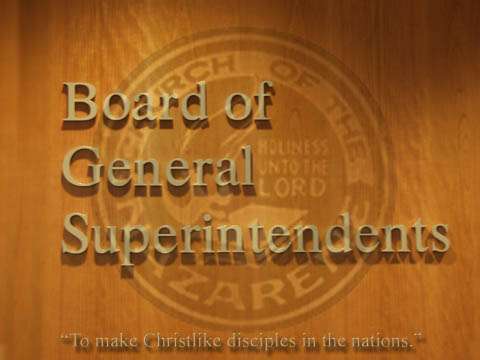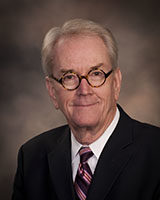By J.K. Warrick
Dennis Kinlaw says one of the most important decisions we will ever make is how we think about God. Who is He? What is His essential nature?
I believe that to be true. Another critical decision for ministers is how we think about ourselves. What do we envision our role to be as leaders in the life of the church? How are we to exercise our mandate to “… have authority in the Church of God,” as we are charged at the time of our ordination?
Colossians chapter 1 gives clear insight into the biblical model of leadership for those who shepherd God’s flock. Through the testimony of the Apostle Paul, we begin to understand how those of us who minister and lead ought to think of ourselves so that we will be effective as shepherds of the flock.
First, Paul describes himself as “… an apostle of Christ Jesus by the will of God …” (Colossians 1:1). An apostle is one commissioned by another for special service. The Apostle Paul understood well that his role was to accomplish the mission of God as he led the churches under his care. In other places, he described himself as the servant of God.
Perhaps it is good to remind ourselves that first, we are the servants of God on a mission to accomplish His purposes. If we only envision ourselves as serving others, we will soon grow “weary in well doing” and lose our passion for the task. As we understand ourselves first as servants of God, we will find a source of renewal that forever brings fresh energy and passion for the work.
Second, Paul describes himself as servant of the gospel (Colossians 1:23). In Romans 1:15, Paul declares that he is eager to go to Rome to preach the gospel. In 1 Corinthians 9:16 he says, “Woe to me if I do not preach the gospel” (NIV). Other similar statements indicate that he felt himself bound by the call of God to proclaim the good news of God in Christ. Earlier in 1 Corinthians chapter 1, he declared that his message was simply, “Christ crucified.” His call was to proclaim all that was implied in that statement.
We, too, are servants of the gospel of Jesus Christ. May God so fill us with grace and truth that we lead as the gospel demands and proclaim the gospel, “Christ crucified,” with passion and conviction to our generation. The message is not a theological construct or doctrinal tradition; the message is Christ crucified, risen, and forever interceding for us before the Father.
Finally, Paul says of himself that he is the servant of the Church by the commission of God (Colossians 1:24–25). He declares, “Now I rejoice in what I am suffering for you … the church” (Colossians 1:24, NIV). These are the words of a true servant. Paul found reason for rejoicing that his suffering could somehow benefit the Church, the Body of Christ.
In Philippians 3:10–11 (NIV), Paul says, “I want to know Christ—yes, to know the power of his resurrection and participation in his sufferings …” He seemed to believe that to accomplish God’s purposes, one must be willing to enter into the sufferings of our Lord. That suffering could even be working with difficult people, leading them to a better understanding of grace and truth.
Early in my own ministry, I, too, often prayed for a different assignment rather than endure the hard work and suffering involved in leading difficult people. I have come to believe that ministry involves suffering on behalf of others as we seek to build up the Body of Christ.
We are servants—servants of God, servants of the gospel, servants of the Church.
May God give us grace to serve well!





